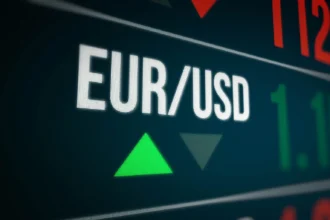Global Markets Rattled as U.S. Launches Airstrikes on Iran’s Nuclear Facilities
In a stunning weekend development, U.S. President Donald Trump announced via Truth Social that the U.S. military conducted a “spectacular military success” by bombing Iran’s nuclear enrichment facilities, escalating tensions in the already-volatile Middle East.
This dramatic move is expected to roil global markets when they reopen, with analysts warning of knee-jerk reactions in oil prices, equity volatility, and surging demand for safe-haven assets.
“Markets are going to be initially alarmed, and I think oil will open higher,” said Mark Spindel, CIO of Potomac River Capital.
Oil Price Spike Imminent?
With Brent crude futures already up 18% since early June, analysts are eyeing a potential breakout above $130 per barrel if tensions spread or Iranian oil output halts.
Oxford Economics had earlier modeled three scenarios:
- ✉️ De-escalation: Prices stabilize
- ⚡️ Disruption of Iranian oil production: Prices approach $100/bbl
- ⛔️ Closure of the Strait of Hormuz: Brent could surge past $130/bbl
A supply shock of this scale could drive U.S. inflation to 6%, reducing consumer spending and nullifying hopes for interest rate cuts this year.
“This adds a complicated new layer of risk… especially on energy prices and inflation,” said Jack Ablin, CIO at Cresset Capital.
Equities Set for a Sell-Off?
While the S&P 500 held relatively stable after Israel’s earlier attacks, a direct U.S. military strike could push investors to sell risk assets. However, history suggests that such sell-offs may be short-lived.
- After the 2003 Iraq War, stocks rebounded within weeks
- The 2019 Saudi oil facility attack saw a brief dip before recovery
Historical average: S&P 500 down 0.3% three weeks post-conflict, but up 2.3% after two months (Wedbush & CapIQ Pro).
Safe-Haven Demand to Soar
Investors may rotate into safe-haven assets including:
- Gold (likely to test $3,400/oz again)
- U.S. Treasuries (yields to drop)
- U.S. Dollar (flight-to-safety bid)
“Do we see a flight to safety? That would signal yields going lower and the dollar getting stronger,” said Steve Sosnick, strategist at IBKR.
Still, the dollar’s longer-term strength remains in question amid 2025’s trend of U.S. exceptionalism fading.
Inflation Risks Resurface
A dramatic jump in oil prices could ignite another inflation wave, just as global central banks hoped to pivot toward easing monetary policy.
Oxford Economics notes that a prolonged oil shock could wipe out all chances of rate cuts in 2025.
Geopolitical and Economic Crossroads
Jamie Cox of Harris Financial believes the attack may force Iran to seek a peace deal:
“With total annihilation of its nuclear capabilities, Iran has lost leverage and may hit the escape button to peace.”
But others, like Spindel, remain cautious:
“We’re engaged now. What comes next? It’s the uncertainty that will blanket the markets.”
What Should Investors Do Now?
Key strategies for navigating this volatility:
- Watch oil futures: Key indicator for inflation trajectory
- Track bond yields: Lower yields indicate fear-based positioning
- Monitor safe-haven flows: Gold, dollar, and yen strength = panic levels
- Avoid knee-jerk selling: History suggests bounce-backs are common
Stay updated with news from OPEC, the White House, and Iranian state media to anticipate next market moves.
Frequently Asked Questions (FAQs)
Q1: Why did the U.S. bomb Iran’s nuclear facilities?
According to President Trump, the airstrike was intended to neutralize Iran’s nuclear threat and pressure the regime into peace negotiations.
Q2: How will oil prices be affected?
Oil prices are expected to spike due to fears of disrupted Iranian production or a closure of the Strait of Hormuz.
Q3: Is this conflict going to cause another recession?
Not immediately, but sustained high oil prices and inflation could slow global growth significantly.
Q4: What happens to inflation now?
Analysts predict U.S. inflation could climb as high as 6% if oil jumps to $130, complicating monetary policy.
Q5: Should I sell my stocks now?
History shows initial market drops during geopolitical crises are often followed by recoveries. Evaluate risk tolerance.
Q6: Will the dollar get stronger or weaker?
In the short term, the dollar could strengthen due to safe-haven flows. Long-term direction depends on geopolitical outcomes.
Q7: What assets benefit in this kind of environment?
Gold, U.S. Treasuries, and defensive equities typically perform better during geopolitical uncertainty.
Disclaimer
This article is for informational purposes only and does not constitute financial advice. Market conditions may change rapidly. Always consult a licensed financial advisor before making investment decisions. The author and platform bear no responsibility for investment losses.



